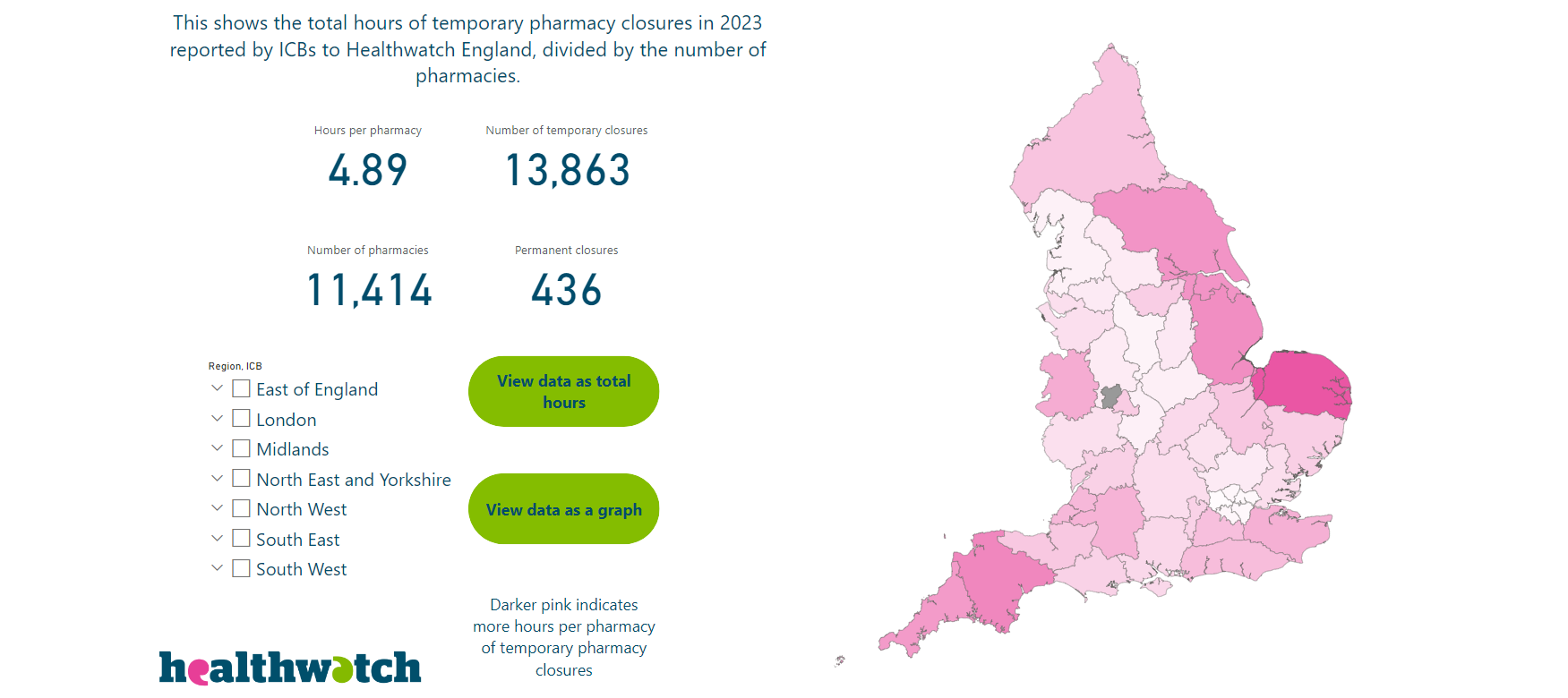T: 01822 851370 E: [email protected]
Pharmacy Closures in Rural Areas: A Growing Healthcare Challenge

A recent report from RSN Member, Healthwatch England has highlighted the growing crisis in community pharmacies across England, which disproportionately affects rural areas.
Between January and December 2023, 436 pharmacies closed permanently, with a further 13,863 instances of temporary closure. This has resulted in the loss of 46,823 hours of pharmacy services—equivalent to more than 5,800 working days. While these closures affect all regions, rural communities, older populations, and areas with fewer GPs per head are being hit hardest.
For rural communities, pharmacies are not just a place to collect prescriptions; they are a lifeline for timely healthcare advice, medications, and support. Yet, the data shows that areas like Norfolk and Waveney, Devon, and Lincolnshire—home to many rural residents—are experiencing some of the highest rates of temporary closures per pharmacy. Norfolk and Waveney alone recorded a staggering 17.48 hours of closure per pharmacy, the highest in England.
Rural Areas and Older Populations at Greater Risk
The data paints a worrying picture for older residents, who rely heavily on these services. Areas with higher percentages of over-60s and over-80s populations, such as Norfolk and Waveney and Lincolnshire, tend to have the most hours of temporary closures. This could mean that those who need access to pharmacies the most are often left without essential services.
The primary reason behind these closures is a shortage of staff, particularly locum pharmacists. Rural areas often struggle to attract and retain healthcare professionals, exacerbating the issue. While Integrated Care Boards (ICBs) have attempted to mitigate the problem, the impact on rural communities continues to worsen.
The Need for Action
Healthwatch England is calling for urgent action to address this issue. They recommend that pharmacy teams improve communication around closures and that Integrated Care Boards (ICBs) ensure contingency plans are in place. They stress that more needs to be done to notify patients in advance when pharmacies will be closed, particularly in rural areas where alternative options may be far away.
A national evaluation of pharmacy services, workforce planning, and funding is also being called for, especially given the launch of initiatives like the Pharmacy First service. As pharmacies are increasingly asked to play a bigger role in primary care delivery, it is essential that they are adequately staffed, resourced and accessible.
Mapping the Problem

To assist in understanding where these closures are having the most impact, Healthwatch has developed a pharmacy closures mapping tool. This tool allows users to explore which areas are most affected, providing valuable data for decision-makers and residents alike. Take a look at the data available for your area HERE.
For more information on this pressing issue, you can read Healthwatch England’s full briefing HERE and find our more on their website HERE.



